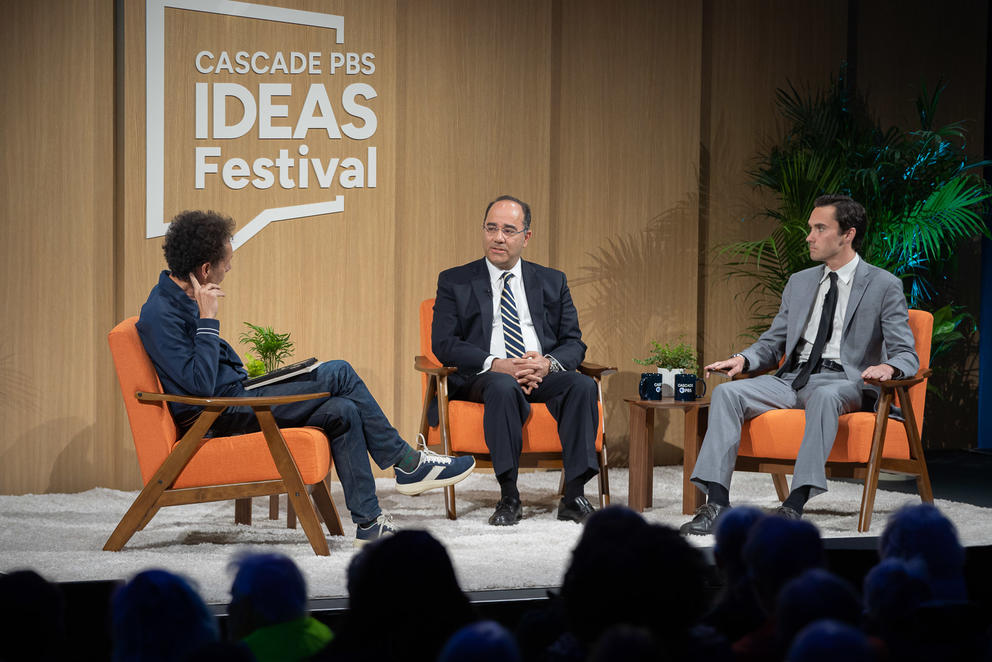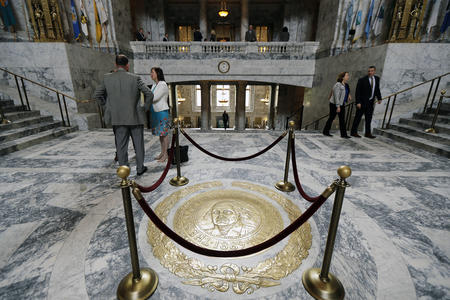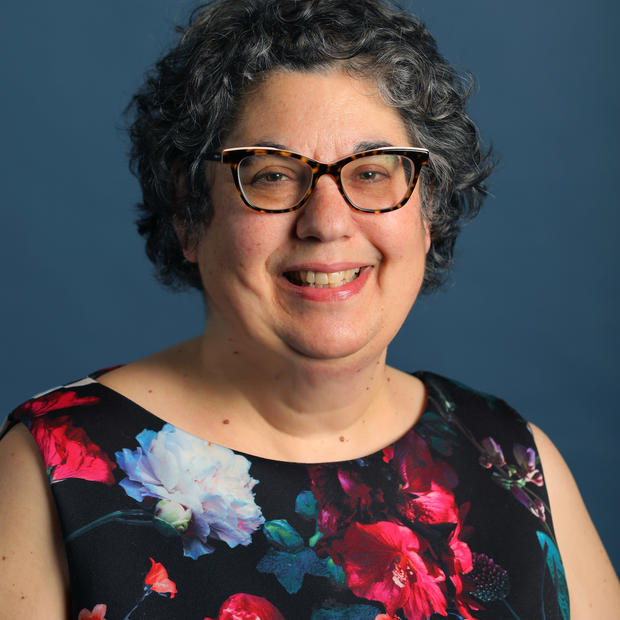From a somewhat gruesome description of Washington, D.C., trauma surgeon Dr. Babak Sarani’s work day, including data on the average holes in gunshot victims’ bodies. To the passionate declaration that ended Malcolm Gladwell’s live interview for the “Revisionist History” podcast.
In response to Gladwell’s question of what gives him hope, activist David Hogg answered without a touch of irony, “Young people have time.”
“No matter what the Supreme Court says, we’re going to outlive them,” said the co-founder of March for Our Lives. He got involved in gun control activism after his Parkland, Florida, high school suffered a mass shooting in 2018. That statement attracted more applause than most speakers at Saturday's event.
Gladwell said he hoped the conversation would bridge what he sees as a disconnect between what is happening on the ground in gun violence and the policy response to that reality.
Dr. Sarani brought the reality check. For instance, before the pandemic, 15% of patients coming into his emergency room at George Washington University Hospital had gunshot wounds. During the pandemic, that number rose to 33%. It has dropped again, to 25%, still above pre-pandemic levels.
The surgeon explained that most of the gunshot victims who make it to the emergency room survive, as medical science has made great strides. The big difference today is that almost everybody is shot more than once because semiautomatic weapons have pushed most other handguns out of the market. The average number of holes in a body these days, in case you’re wondering, is three or four, Sarani said.
He spoke of the need for more research, and shared one of his hardest saves: a school security guard shot multiple times by a man shooting at an elementary school. When Gladwell asked him about his emotional response to his job, Sarani admitted he was doing his best to stay unemotional on stage.
“It goes from elation to the extremes of remorse and sorrow,” the surgeon said, adding that they can, thankfully, save the majority of trauma victims who make it to the hospital. Of course, many gunshot victims do not.
But the easiest way to prevent death from injury is to prevent the injury in the first place, he added, reciting a list of policy developments that have saved lives from seat belts to road design.
“There’s always room to improve,” Sarani said of the work of doctors. “But nothing will ever beat prevention.”
And keeping guns out of the hands of potential shooters and people who are suicidal, both Sarani and Hogg emphasized.
When asked what one policy change he would make to decrease gun violence, Sarani mostly deferred to Hogg, who had a lot of ideas.
No. 1 suggestion on Hogg’s list: Don’t try to reinvent the wheel. Hogg and most other gun responsibility activists agree that Massachusetts has some of the strongest gun laws in the country, and among the fewest gun deaths per capita. He said the U.S. should federalize those laws.
You can still get a gun in Massachusetts, but it takes more work to buy guns as well as bullets.
“If you need more than 10 rounds to hit something, you need one of two things: glasses or more range time,” Hogg said.
If you want to watch this whole session, it will air on Cascade PBS on May 17 at 7 p.m. and be streamed from cascadepbs.org and crosscut.com the next day. Listen to all sessions on the Cascade PBS Ideas Festival podcast.
Get daily news in your inbox
This newsletter curates some of the most important headlines of the day from Crosscut and other news outlets.






